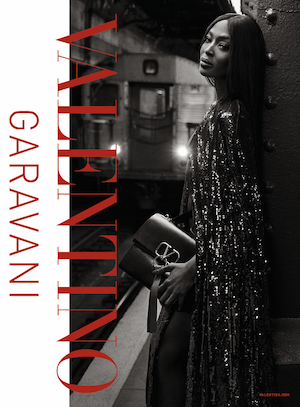Art & Culture
QUMRA...The Second Coming
By Rubina Singh
June 30, 2016
Doha Film Institute (DFI) recently organized the second edition of the Qumra Film Festival with the primary motive of assimilating an international gathering of filmmakers to contribute to the development of emerging voices in cinema in Qatar.
The festival provided an incredible week of screenings and discussions on filmmaking, right in the heart of the Arab world’s upcoming film industry in Doha. Over the course of a six-day event, industry experts made a lasting and meaningful impact, not only on first and second-time filmmakers, but also on the development of Qatar’s film industry. A wide smorgasbord of screenings and discussions were spread over two beautiful locations, The Museum of Islamic Art and Souk Waqif, giving the international film professionals a taste of Qatar’s beautiful Islamic architecture and cultural buildings while at the same time bringing together films from budding filmmakers in the Middle East and the masters from beyond. “Qumra created a kind of community which is quite unique. You have works in process; documentaries and features, even animation films,” said the Locarno Film Festival Artistic Director Carlo Chatrian, who appreciated the variety of projects included in the festival.
The festival screened films on a wide spectrum of themes, ranging from the most topical such as the Mediterranea and Waves to local themes such as The Palm Tree, with almost all shows completely sold out. Jonas Carpignano’s ‘Mediterranea’ – an urgent and topical tale of two African migrants who make their way to Italy in the attempt to secure a better life for themselves – is a poignant tale revolving around the controversial and current issue of migrants in Europe and left the spectators with a deeper understanding of the dilemma currently facing thousands of refugees in Europe.
Discussions with the filmmakers preceded the screenings, providing both entertainment and education under one roof. Executive producer and screenwriter James Schamus presented Ang Lee’s ‘Crouching Tiger, Hidden Dragon,’ the 2001 film that swept the Academy Awards and redefined martial arts cinema for the new millennium. From that platform, the discussions spread over various aspects of filmmaking, providing the audience a close-up opportunity to learn from the internationally acclaimed filmmakers. “Casting is 90% directing! Actors need space to be themselves, knowing that they can fall and the director will catch them,” said Schamus while sharing his views on the importance of the casting process and good direction in a film. “If the actors don’t ‘take on’ the role or ‘feel it’, then it is the director who should be able to encourage them and ‘direct’ them,” he asserted, highlighting the importance of a good director to a film’s success. “One must choose the director of photography not only for what he can do, but also for his onset presence,” was another advice the veteran gave to aspiring filmmakers.
Enriching the experience of film lovers, Qumra screenings also included the first ever Middle Eastern film to win the Palme d’Or: Waves '98 – a beautifully animated look at the alienation of Beirutis in their home city, in the period following the Lebanese Civil War. The complex relationship of contemporary Beirutis to their troubled home city is uniquely explored in Ely Dagher’s subjective expression of ‘feeling lost at home’.
“The content deals with the social bubble existing in Lebanon. I think people in Lebanon have to live in that bubble. Since I didn’t know how I stood on the topic, I dealt with my feelings through this film,” said Dagher, while talking about the inspiration behind his award winning film. “I was born and raised in Beirut, but I was doing my Masters in London. Every time I went back to Beirut I found that the city had changed. Living overseas allowed me to have a more objective view of what was happening in the region. It was a time when the war in Syria had started. When you are living outside your home country you tend to worry about all the bad news you hear in the media, but once you return home it feels like everything is just fine. I wasn’t there long enough to feel that I needed to fit in that environment nor was I gone long enough to disconnect from it, and that’s how the idea to make this film emerged. The film is a product of me trying to figure out what life meant to me!” added Dagher, striking a cord with thousands of people in our world without borders. Sharing his perspective on how winning an award impacts the filmmaker, Dagher commented: “It gives you the motivation to keep going and it gives the industry more confidence in your abilities, and hopefully to be courted by many producers.”
Among others, the festival also screened Once Upon a Time in Anatolia, a hypnotizing medley of melancholy, mystery and the trials of life by the celebrated Turkish director Nuri Bilge Ceylan, and Roundabout in My Head, an award-winning movie by Algerian director Hassen Ferhani about the lives of men working in the oldest slaughterhouse in Algiers.
Besides leading master classes and supporting first and second-time filmmakers with hands-on industry events, attendees also had a rare chance to speak to the filmmakers in a Q & A session after the screenings, adding an extra depth to the experience. Some of the guests were developers, sales agents, funding officials and producers, all able to participate in the global industry right here in Doha.
Naomi Kawase, the youngest winner of the Caméra d’Or from the Festival de Cannes, presented The Mourning Forest, her naturalistic and intimate film about two tormented souls on a journey to peace. Russian Ark, an award-winning celebration and critique of 300 years of Russian arts and culture was presented by Qumra Master Aleksandr Sokurov who is celebrated as one of the best directors of world cinema.
Jassim Al-Rumaihi's The Palm Tree, winner of the ‘Made in Qatar’ award for Best Documentary at the Ajyal Youth Film Festival last year, brought Qatar’s burgeoning film industry and opportunities for aspiring filmmakers to the forefront. Talking about his film’s localized themes, Al-Rumaihi reflected on the advice given by his professors during his days as a student of media studies in Northwestern University in Qatar (NU-Q). “ ‘You tell the stories of the people you know well,’ our professor used to tell us. All my films so far have been influenced by that advice. Falconer emerged out of the story of a family friend who was a falconer and also experienced the Egyptian revolution, just as Roughcut is a documentary regarding Arabian horses, another subject close to my heart. There are a lot of stories to be told…” he said, hinting at themes of his future films in the making. Talking about the brevity of his films, he added: “A good film doesn’t necessarily have to be a long film. Length is not my prime consideration. I want to make a good film.”
A graduate of NU-Q’s very first batch of students, Al-Rumaihi still marvels at the opportunities unfolding in Qatar, saying: “I never thought I would be making films one day. I used to think that was only for Hollywood. Over a span of two to three years, we found ourselves in an environment where making high standard films seemed possible. And not only that, with the film festivals taking place right here, we could also get the exposure the films deserved. I wasn’t planning on taking up filmmaking as a vocation and I am still working with Al Jazeera, but it is something I might take up as a full-time calling one day. The career options open to the youth in Qatar have changed so much within our lifetime. And perhaps the presence of Al Jazeera has also helped in grooming talent in the industry. In less than two decades, so much has changed. We can now collaborate and share ideas with people all across the world, not just in filmmaking but across the board, in all aspects of life!”
The festival closed with a screening of 'The Look of Silence' by Academy Award nominee Joshua Oppenheimer, presenting his hard-hitting documentary about the victims and perpetrators of the Indonesian Massacre of 1965 and 1966 during which almost one million citizens were butchered by death squads, accused of being “communists”. In 2012, filmmaker Joshua Oppenheimer made the multi-award-winning The Act of Killing, a series of interviews with death-squad leaders in which the men recount their involvement in this mass murder. Two years later, Oppenheimer returned to the subject, this time following an unnamed man in his forties whose brother Ramli was a victim of the killings.
This year’s Qumra festival brought together developers, sales agents, producers and professionals from the entire gamut of the global industry right here in Doha. The event was well summed up in the words of George David, the general manager of the Royal Film Commission, who said: “It is where the Arab film industry is in one place, where thoughts are exchanged and projects are introduced and work opportunities emerge.”






























